How ‘Daisy Jones & The Six’ Became a Real (Fake) Band
- Oops!Something went wrong.Please try again later.
- Oops!Something went wrong.Please try again later.
- Oops!Something went wrong.Please try again later.

Daisy Jones & The Six star Sam Claflin arrived at his final audition to play fictional 1970s rock star Billy Dunne without, by his own admission, the strongest grasp on the type of musician he was expected to embody.
His future showrunners had already taken a shine to the dimpled British actor, as had music supervisor Frankie Pine and producer Hello Sunshine’s president Lauren Neustadter, but one last hurdle remained before he could land the male lead in Amazon’s hot adaptation of Taylor Jenkins Reid’s novel of the same name. He had to sing live for the project’s music producers, Blake Mills and Tony Berg. Pine gave Claflin a shot of moonshine to soothe his nerves. The actor entered the storied halls of Sound City Studios, the Van Nuys building where Mick Fleetwood first met Lindsey Buckingham, and proceeded to kind of blow it. “I had prepared Elton John’s ‘Your Song,’ and I did my best,” says Claflin, laughing about his choice of ballad. “It did not take long before they stopped me and said, ‘Oh, no … This is not a rock song.’ “
More from The Hollywood Reporter
Mills and Berg decided to try a different route. They turned off the microphone and cameras. Someone picked up a guitar, began playing the chords to The Beatles’ “Come Together,” and asked Claflin to sing along. ” ‘Oh, that’s Michael Jackson, right?’ ” he remembers asking. “Just to give you a clue about how bad my music knowledge was.”
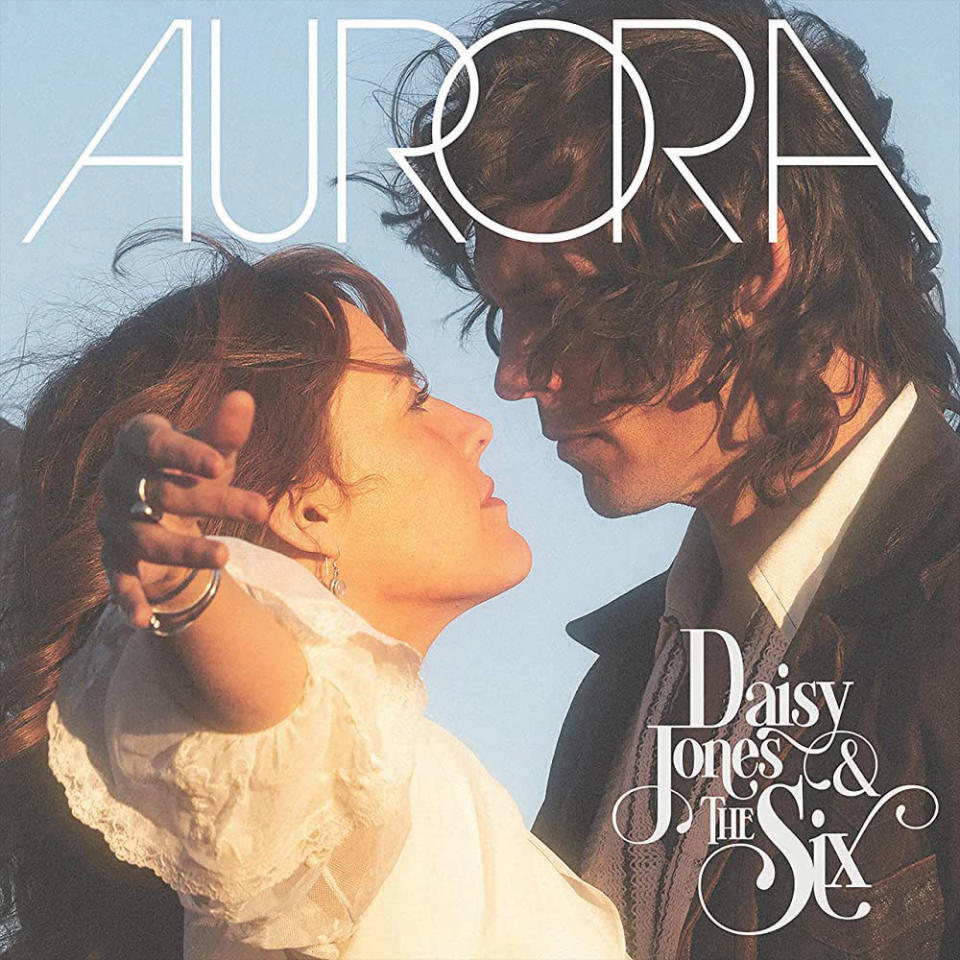
Everyone in attendance that day or who later saw the tape can now laugh about the debacle. Claflin, of course, stars opposite Riley Keough’s Daisy in the 10-episode limited series that premiered in March. He now knows how to play guitar. He sings on an album (Aurora) that’s hit No. 1 on Billboard‘s Soundtracks chart and commanded millions of streams. In short, he sold it. But the actor’s transformation epitomizes the lengths to which the Daisy Jones team went to recapture a bygone era with its made-for-TV band — without trained singers, skilled musicians or even songs in place at the start.
The show’s source material, Reid’s novel, is structured as an oral history and chronicles the meteoric rise and sudden implosion of the band Daisy Jones & The Six during the crest of Laurel Canyon’s thrall over the music industry. Parallels to Fleetwood Mac — including fraught romantic pairings and the presence of rock ‘n’ roll’s fickle spark and saboteur, drugs — are obvious, but the bands’ stories ultimately bear little resemblance to each other. Still, producers feared that being too on-the-nose with the series’ original music would only inspire more comparisons, so they put out a call to songwriters and record producers with a lofty ask: more than an album’s worth of original tracks, all of which had to sound like they came from the 1970s, by a band that never actually existed.
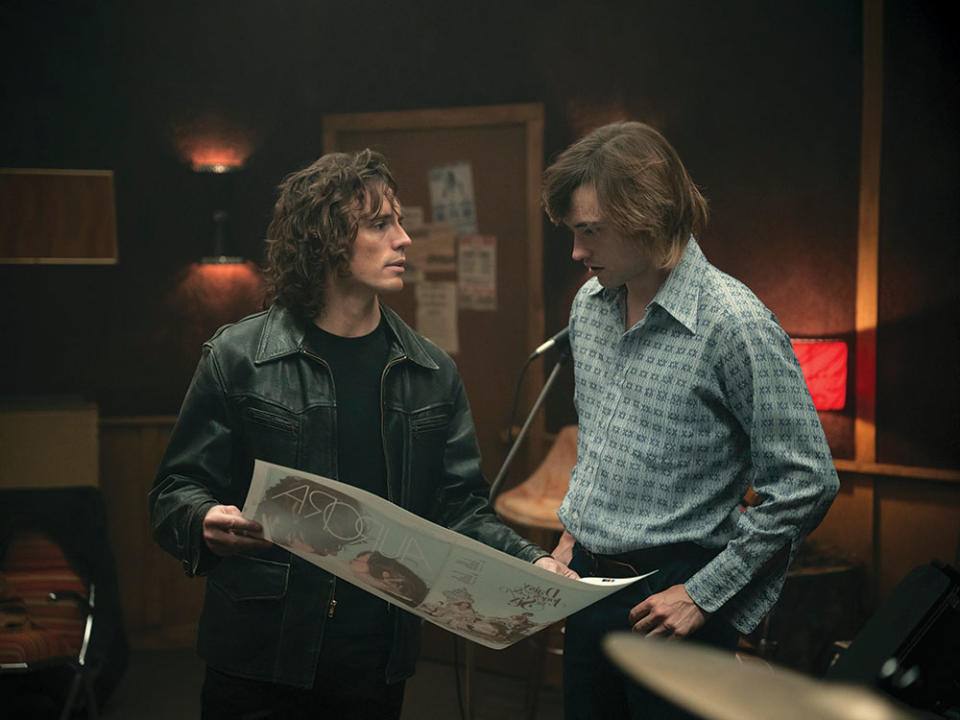
“We got a lot of ‘That sounds like a lot of work,’ ” says Scott Neustadter, the Oscar-nominated writer (The Disaster Artist) and husband of Lauren, Reese Witherspoon’s top programming executive. He served as showrunner alongside Will Graham (A League of Their Own), and their last meeting was with Mills and Berg. The latter duo made a pitch that no one else had. “They didn’t want the music to sound like any one band,” he adds. “They knew you shouldn’t be able to cite all the influences. It should sound like just a cool record in your collection that came out around that time. Blake played us two songs that were exactly that, and we went crazy for them.”
Mills has writing credits on all 11 tracks from Aurora, the fictional band’s complete concept album. Released by Atlantic Records after an intense bidding war, it includes collaborations with the likes of Marcus Mumford, Cass McCombs and Jason Boesel. But the series is littered with other songs Mills and Berg crafted with a small army, perhaps most notably one co-penned by Phoebe Bridgers (the Keough-sung “Type of Guy”) and a trio of disco tunes for Nabiyah Be’s character, Simone.
“Movies and TV rarely, if ever, get music as a subject right,” says Mills. “For me, it’s always a frustrating thing to witness. I came on board Daisy Jones because they told me they were committed to doing things differently — to building the show alongside the music as opposed to the music being treated as an afterthought.”
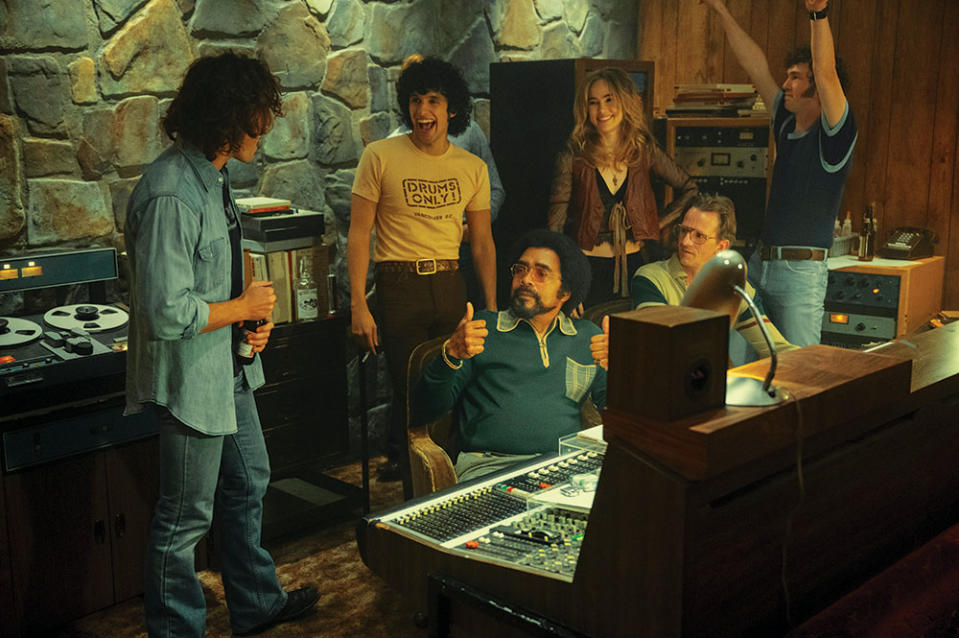
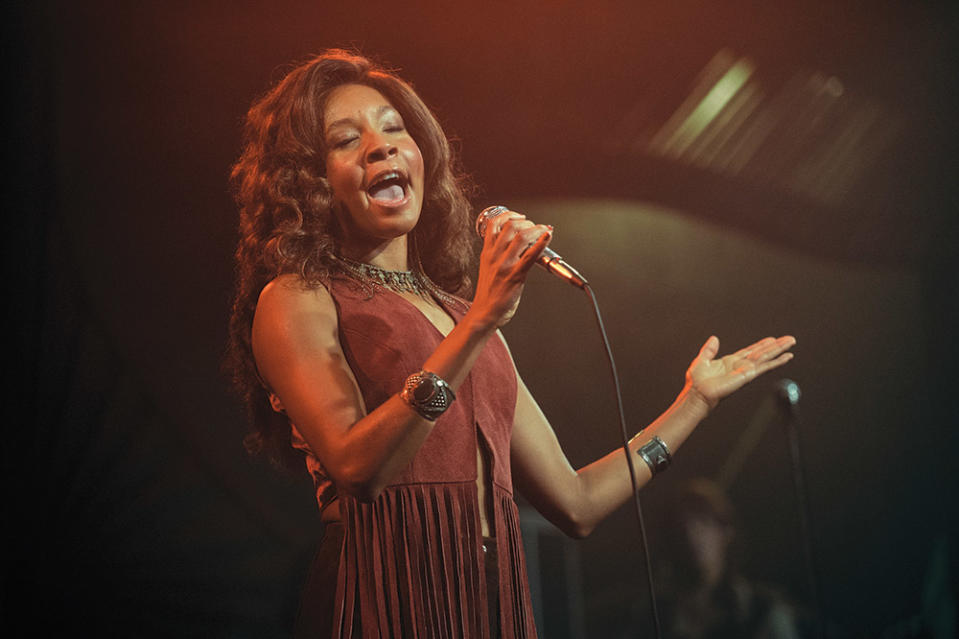
Arguably the most important track in the series, “Look at Us Now (Honeycomb),” was one of the last to come together and still in the early stages when it was suggested as Aurora‘s possible lead single (i.e., the most repeated song in the series and the reason for the band’s fame). ” ‘Hit singles’ always become the most difficult songs to crack, but ours had to be the smash that rocketed this relatively obscure band into ubiquity,” explains Mills. “The note we got was that it needed to be both epic and anthemic.”
Completing the song proved to be a balancing act, likely why it counts more credited writers (five: Mills, Mumford, Boesel, Stephony Smith and Jonathan Rice) than any other featured in the series. Everyone wanted it to sound like a hit, though they were channeling an era that had a very different idea of what constituted one. “One reason we all love the ’70s is because it was authentic,” says Pine. “When artists were making albums, they weren’t concerned about what the single was. They were concerned about the flow of the story when you listen to side A versus side B.”
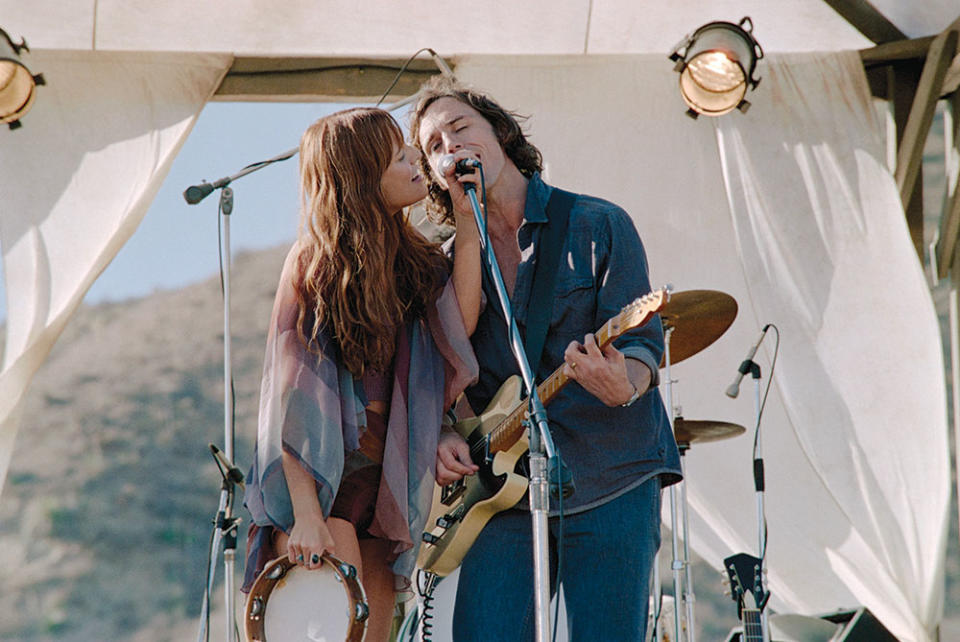
Production often took a similar approach, as evidenced by the music being completed long before anyone stepped on a set. Pine, a seasoned music supervisor with dozens of films and six seasons of country soap (and original music factory) Nashville under her belt, was hired prior to any of the cast. She agreed with the Neustadters that the actors, particularly the pair to play Billy and Daisy, would have to have at least some latent musical talent — “There’s nothing worse than watching something and going, ‘Oh God, they’re so not singing,’ ” Pine bemoans — though, in the case of Keough, that latency came with genetic bona fides.
“We never even considered dubbing, and Riley obviously had it in her blood,” says Lauren Neustadter of the granddaughter of Elvis Presley and daughter of Lisa Marie Presley. “But she had never really sung for anybody before.”
Keough had to endure the musical audition like everyone else, including fellow onscreen band members Suki Waterhouse, Josh Whitehouse, Sebastian Chacon and Will Harrison. (Waterhouse had already enjoyed success as a singer, and Be, a solo artist in the series, arrived having originated the role of Eurydice off-Broadway in the Tony-winning musical Hadestown.) But even Keough jokes that her tryout went a little better than Claflin’s. “I think everybody was taking a chance with Sam,” she says, “but for me, I thought maybe they could hear something I can’t — maybe there’s more that I can get out of myself that I’m not aware of yet.”
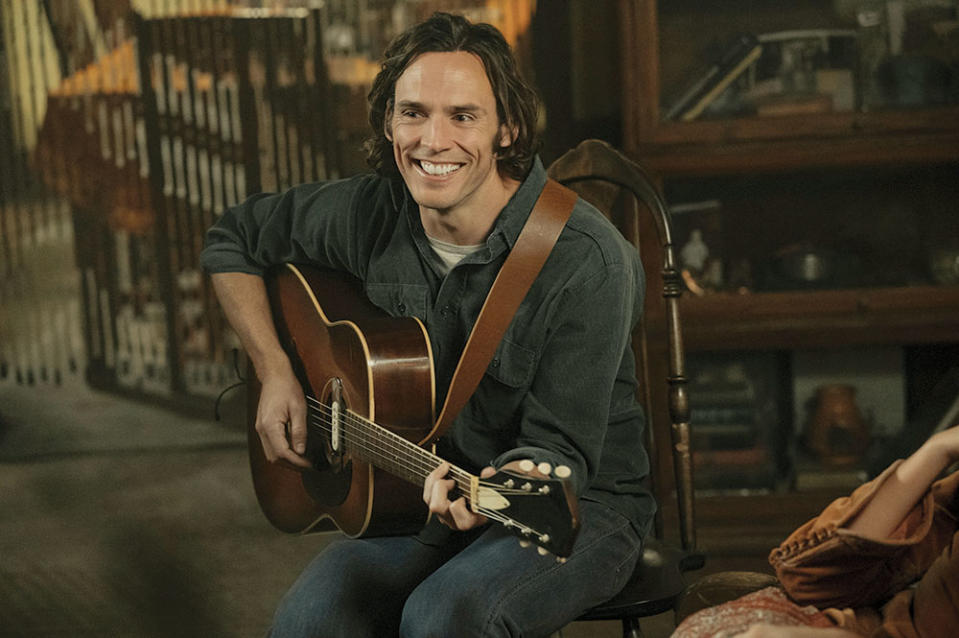
In the pursuit of authenticity, Claflin and Keough were to become proficient in guitar — as was Harrison. Waterhouse would learn the keyboard, while Whitehouse tackled the bass and Chacon focused on the drums. “I had, I think, six weeks to prepare,” says Claflin, “to sing, to learn 12 songs and to learn guitar. And for me, I had to lose weight, do the American accent and grow my hair as fast as I could. It was intense.”
It was also a false alarm. The Daisy Jones that aired this past spring is completely different from the one that might have been had the COVID-19 pandemic not torpedoed the planned spring-summer 2020 shoot and ultimately delayed production by a year and a half. The cast used all of that time to pull off something that it likely couldn’t have otherwise. Claflin and Keough worked on their singing. They all practiced their instruments alone and over Zoom together. And, when eased restrictions finally permitted it, they started attending a daily in-person band camp to better gel as group and held “jam sessions” every Friday.
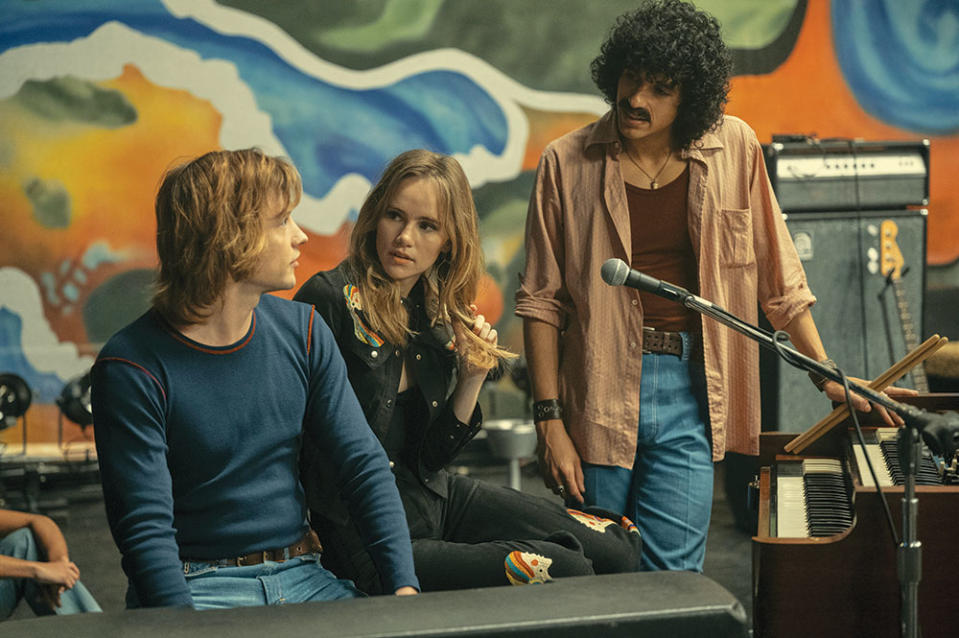
“I had never picked up a guitar in my life, so I can’t imagine what it would’ve been had we not had that year to rehearse,” says Keough. “I think we would’ve had to fake a lot of it, because there were single songs that took me months and months and months to learn.”
Pine realized the group was getting confident in their skills when she started noticing them acting bored during rehearsals. More producers and other collaborators started sitting in on practice to raise the stakes — but with the shoot date still a few weeks off, the creative team wanted more proof that the alchemy they were seeing in various small rooms would translate for a bigger audience and on a bigger stage. It was Lauren Neustadter’s idea to have the cast put on a full-scale concert, one outside the comfort of Sound City and without the safety net of breaks and do-overs.
So, on a Friday evening in September 2021, about 40 people — producers, Hello Sunshine department heads, Amazon executives and a few close acquaintances who were particularly jazzed about Reid’s book — gathered in front of a stage at music production house Studio Instrument Rentals on Sunset Boulevard for “the ultimate friends and family concert.” Ten minutes before the group was to make its debut, Pine asked if anybody needed anything. “Tequila,” was the reply from several, so Pine and Whitehouse walked down the block to pick up a bottle of courage from the nearest liquor store. After a round of shots — or two for some — they took the stage for a rowdy hourlong set that also featured a number from Be at the halfway point.
“In true ’70s fashion, drinking before a show,” says Pine. “But man, they really knocked it out of the park. They played all of that music live.”
Adds Keough, “I don’t know if we could have faked the confidence that gave us. Being able to perform live together and knowing the songs so well created so much freedom for us when it came to performing on the show.”
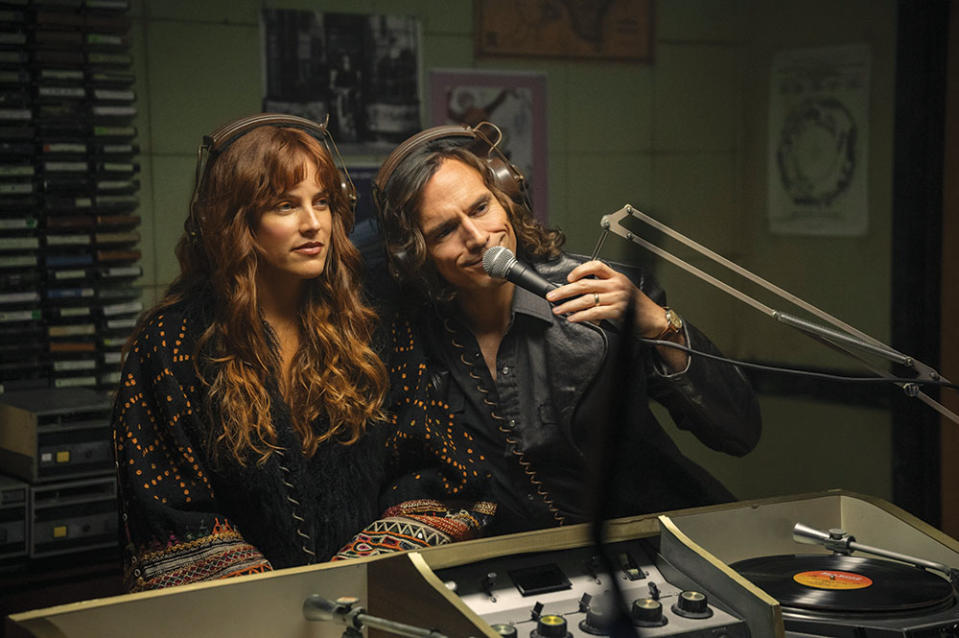
And they continued to perform a lot. Over the course of the seven-month Daisy Jones shoot, some songs were performed over 100 times. There’s been a similar repeatability for many in the series’ fan base, both new and built-in, courtesy of Reid’s best-seller. By the time the first three episodes dropped on Prime Video on March 3, “Look at Us Now (Honeycomb)” had already logged more than 3 million listens on Spotify alone. The tally has since climbed past 25 million. It’s enough to inspire at least some speculation about what happens next — whether the band that was made for a 10-episode miniseries, the result of years of prep, might have a life beyond the show.
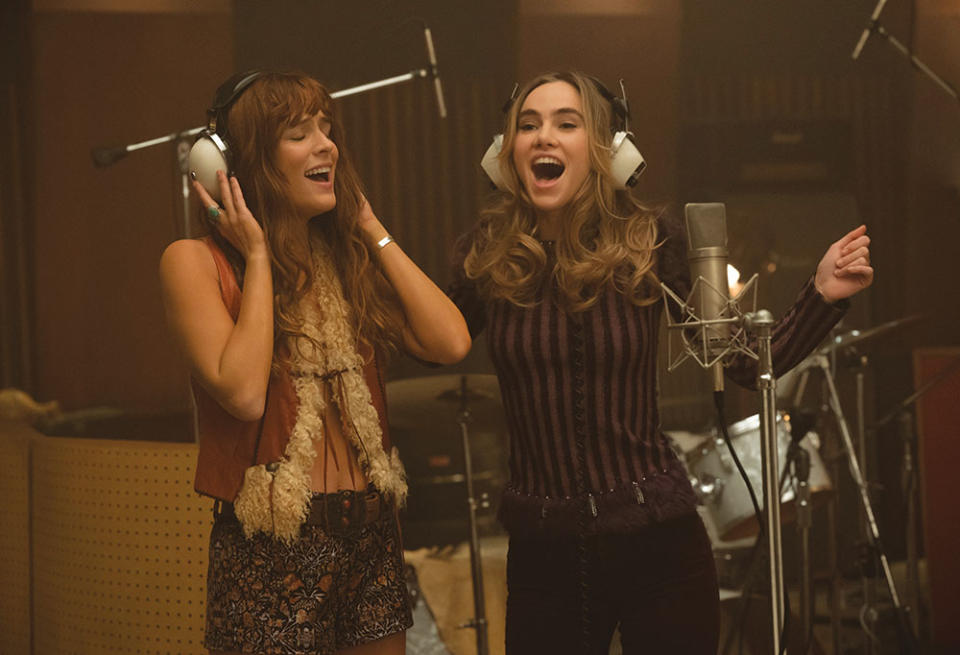
“They recently sent me my audition video,” says Claflin, recalling his schmaltzy Elton John faux pas. “I watched it back and thought, ‘How on earth did they see anything to work with in that?’ To this day, singing in front of people is the most nervous I ever get, and I’ve done it a lot at this point. The anxiety and insecurities that I carry around as an actor, they’re just doubled by having my voice out there, but I hope we have an opportunity to do it together again — whether it’s one song at a bar mitzvah or a second album.”
Unlikely as that sounds, perhaps it’s not out of the question. “We tend to talk about shows becoming a family,” observes Lauren Neustadter. “This show became an actual band.”
This story first appeared in the June 14 issue of The Hollywood Reporter magazine. Click here to subscribe.
Best of The Hollywood Reporter
From 'Fuller House' to 'And Just Like That': 30 Shows That Prove TV Reboot Culture Is Alive and Well
"This Was One Hot Mess": Lisa Vanderpump, Keke Palmer and the THR Reality Roundtable
Tom Holland Breaks Free: Talking Zendaya, ‘The Crowded Room’ and the Future of Spider-Man

